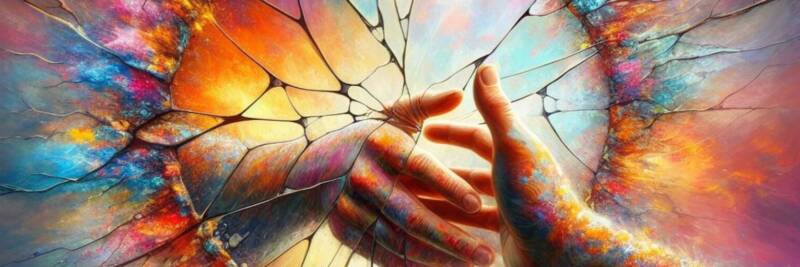Compassion has to coexist with a sense of human responsibility

Published in The Times, 18th September 2004
Share
We are at the epicentre of Judaism’s penitential season. Thursday and Friday were the Jewish New Year. Today is the special “Sabbath of repentance”. Next Saturday is Yom Kippur, the Day of Atonement, the holiest day of the year.
It is a time of intense soul-searching. We repent of every conceivable sin. Our prayers take us through lists of possible transgressions. We confess with every letter of the alphabet, every syllable of our souls. If we did it, we are sorry. And if our remorse is genuine and our resolve sincere, God forgives.
Nothing, I suspect, is more politically incorrect than the idea of repentance. It goes against the grain of contemporary culture. It offends against our worship of self-esteem. What could be less self-esteeming than to admit that much of what we do is wrong? Why put ourselves through this ordeal of guilt? Why suggest that, yes, we have faults? Why apologise for what we have done?
In fact, though, there is something profoundly liberating about penitence. It is just that today’s secular mindset makes it difficult to understand. It lies in the fact that when we suffer, there are two questions we can ask. The first is: “Why did this happen to me?” The second is: “What then shall I do?” So different are these questions that they generate two distinct types of culture.
The first focuses on the past, the second on the future. When I ask, “Why did this happen?” I see myself as an object. When I ask, “What then shall I do?” I see myself as a subject. The first is passive, the second active. In the first I search for someone or something to blame. In the second, I accept responsibility. When I do that, a profound human dignity is born.
Many writers have analysed our contemporary “victim culture.” There is something noble about this idea. It was born of great virtues: empathy, sympathy, compassion. These are fundamental to Judaism. As our tradition puts it: God sought to create a world governed entirely by justice, but He saw it was unsustainable. Therefore He added compassion to justice. Only then could humanity survive.
But — and it is an essential “but” — compassion has to coexist with a sense of human responsibility. That is what is wrong with the victim culture. Too often, it is a denial of responsibility. We blame other people for what we did. It was, we say, the fault of the system, the government, the media, politicians, schools, our parents. The victim culture and the blame culture go hand in hand, because they train us to say that whatever happens, it is not our fault. We see ourselves as done-to, not doers; victims, not perpetrators.
In the short run this brings relief. But in the long run it is profoundly debilitating. It locates the cause of our condition outside ourselves. This means that there is nothing we can do about it. Seeing yourself as a victim creates what psychologist Martin Seligman calls “learned helplessness”. Eventually it leads either to depression or to anger, resentment and rage.
The penitential culture is the opposite of the victim culture. It says: “Dear God, I blame no one but myself. Forgive me. Accept my broken heart. And then give me the strength to change.”
A penitential culture defies entropy. Entropy is the law that says: all systems lose energy over time. Penitence conserves energy by turning suffering into a new impetus to do good. It creates a culture in which people don’t blame others for what goes wrong in their lives. It does not ask: “Who did this to me?” It asks: “What can I do to make things turn out differently next time?” It spares us what Shakespeare called “the expense of spirit in a waste of shame.” It produces people of astonishing strength and resilience, such as the late Viktor Frankl who found that even in Auschwitz he could retain a sense of freedom and dignity. In fact, I don’t think Judaism could have survived at all without the mindset that goes with these holy days.
Atonement is the ultimate expression of freedom. On the one hand, confessing testifies to our ability to change. On the other, forgiveness expresses our refusal to be held captive by ill-will. Repentance is where Divine and human freedom meet and create a new beginning. It is the act that defeats tragedy in the name of hope.
That is the best way to start a new year.
